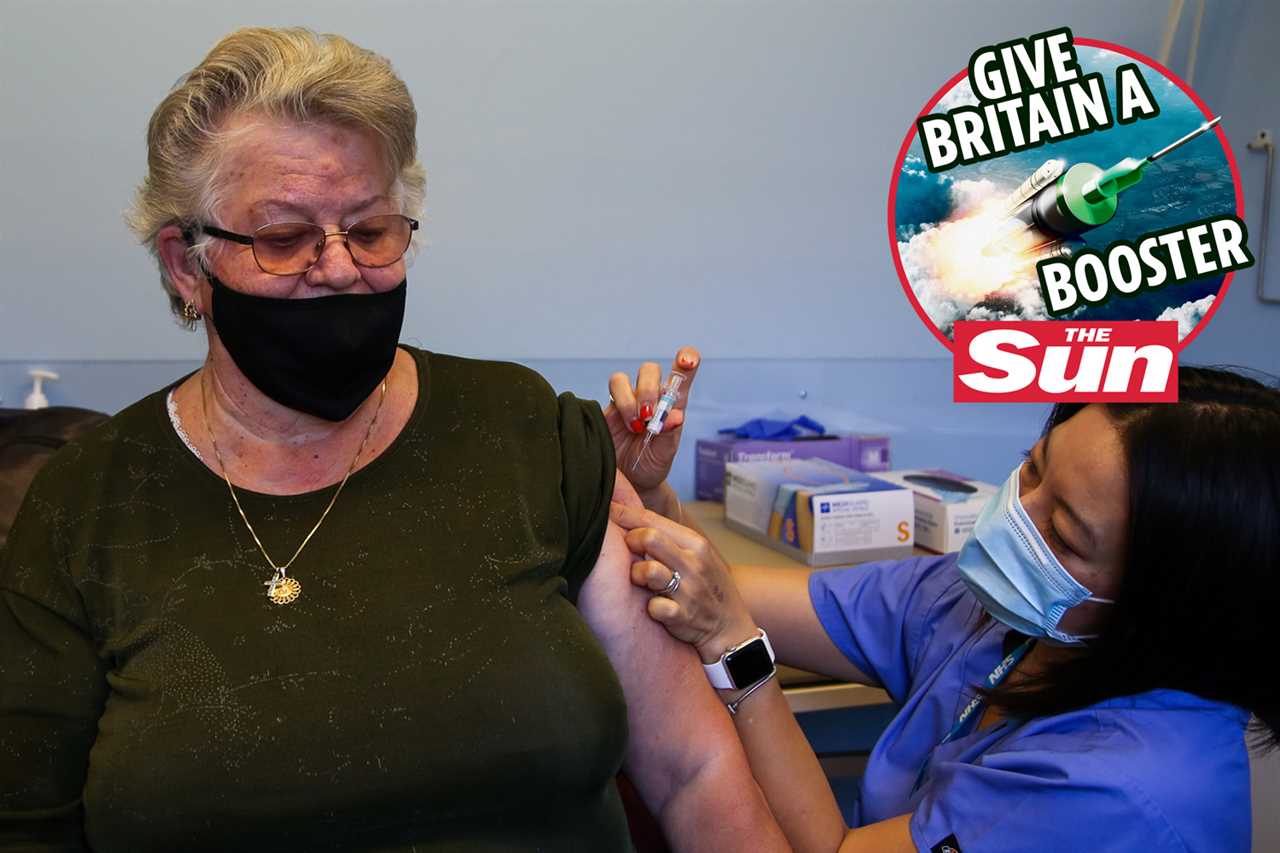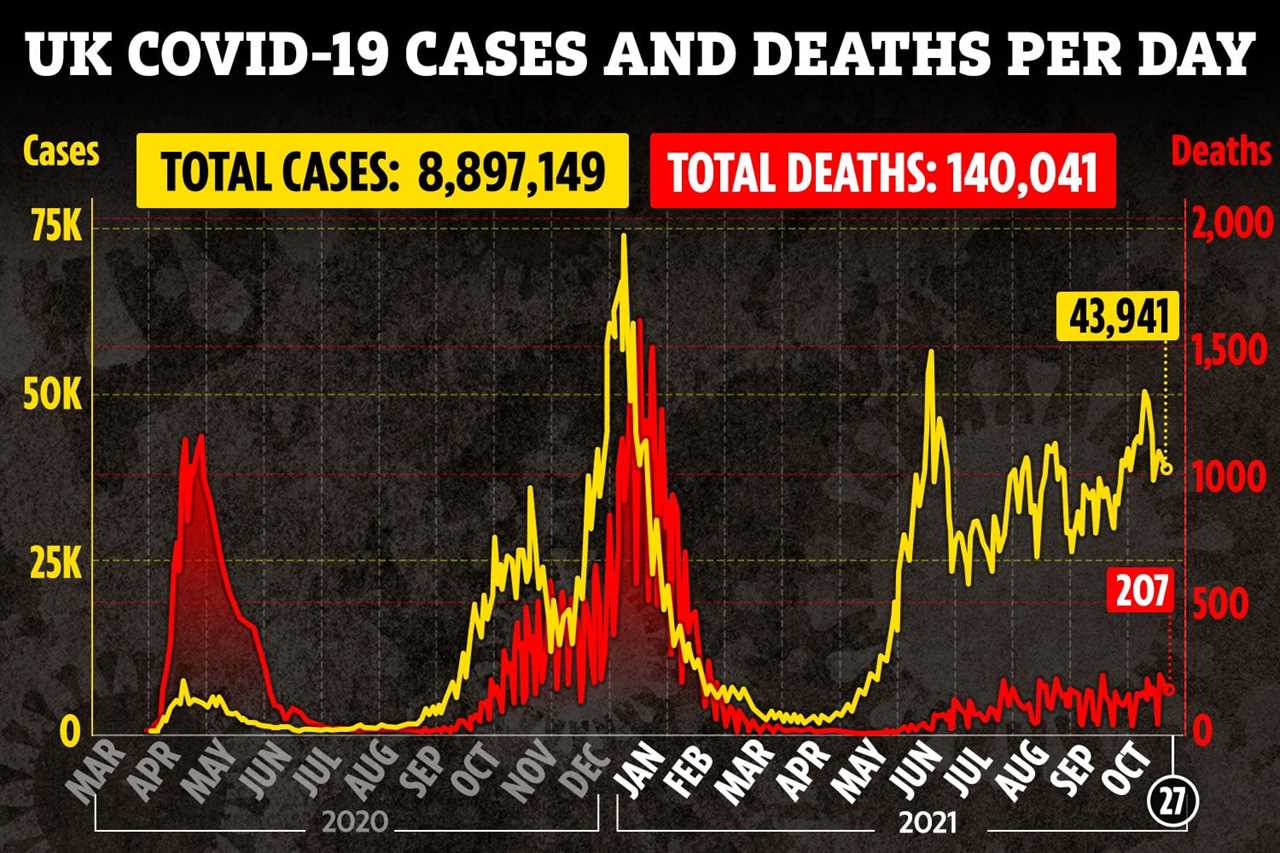PROTECTION from booster vaccines could last up to a year and we may have hit herd immunity already, a major UK study has found.
Top scientists believe tough new Covid restrictions like mandatory mask-wearing, known as “Plan B”, will NOT be necessary if people keep getting jabbed.

Prof Neil Ferguson, who advises the government and lobbied for the first lockdown, now thinks the virus is already in retreat.
He said: “Herd immunity is having an enormous effect right now on damping transmission due to the huge amount of vaccination and the large number of people who have been infected already.
“We may reach a stage in the next few weeks where immunity stops transmission. If the epidemic peaks and then starts declining, we have by definition reached herd immunity.
“We will start getting data from the booster programme in the coming few weeks and I suspect it will show the boosters are highly effective at protecting individuals.
“There are already some encouraging signs in terms of a dip in case numbers. If it isn’t peaking now, then most of the modelling suggests it should peak very soon, as long as we keep getting boosters into people’s arms.
“There is some time to see whether the drop in case numbers now is sustained, in which case [Plan B] measures shouldn’t be necessary.”
The study, published in Lancet Infectious Diseases, found three-quarters of vaccinated people will not catch the virus from someone in their own household.
A quarter of vaccinated people living with someone with Covid subsequently tested positive, compared with 38 per cent of those who were unvaccinated, the study of 621 people found.
Researchers said this demonstrates that unvaccinated people cannot rely on the immunity of those who have been jabbed for protection.
Dr Simon Clarke, Associate Professor in Cellular Microbiology, University of Reading, said: “These findings show that the vaccines remain an effective way to drive down Covid-19 infection, but they are not a silver bullet.
“Infection in the wider community can still be amplified by transmission at home.”
The study also found that the more infectious Delta variant, which accounts for around 98 per cent of Covid cases in the UK, causes a shorter illness than the initial virus did – and vaccines help people get over it even quicker.
Researchers said immunity in some people starts to dip around three months after their second jab – but Prof Ajit Lalvani said boosters should last much longer.
He said: “People may be wondering, if we already need a booster six months after our second shot, when will we need a booster for the booster?
“From our knowledge of the immune system, we know that repeated doses of vaccine lead to longer and longer immunological memory.
“So although we don’t know for sure yet, I expect protection from the boosters will last well over six months, probably up to a year.”
GIVE BRITS A BOOSTER
Just last week Trending In The News launched its Give Britain a Booster campaign.
Experts fear cases and hospital admissions could surge in older people this winter as protection wears off from the vaccines they had six months ago.
Having a booster tops up waning immunity and hundreds of thousands of people have now had their boosters thanks to the campaign.
Prof Ferguson said any waning in protection from vaccines is a gradual process, adding the current six months between second and third doses is “arbitrary”.
He added: “It was chosen because most of the early data from Israel on the effect of boosters involved that level of delay just because of the very early timing of their vaccination programme and when they started implementing boosters.
“But there’s nothing biologically to make us think the boosters will be any less effective if given after four months, so it really is for the Joint Committee on Vaccination and Immunisation (JCVI) to consider the data and the Government to consider whether they want to accelerate the booster programme.”







